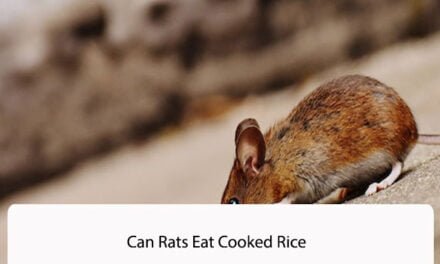Rats are known for their ability to eat almost anything. However, it is essential to ensure that their diet is healthy and balanced. One of the foods that are commonly fed to small animals is Timothy hay. Timothy hay is a type of grass that is commonly used as a source of fiber for herbivorous animals. But can rats eat timothy hay?
The answer is yes, rats can eat timothy hay. Timothy hay is an excellent source of fiber, which is essential for a rat’s digestive system. It helps prevent digestive problems such as constipation and diarrhea. Additionally, timothy hay is low in protein and high in fiber, making it an ideal food for rats. However, it is essential to ensure that the hay is fresh and free from mold, as moldy hay can cause health problems for rats.

Understanding Timothy Hay
Timothy hay is a type of grass that is commonly used as a food source for herbivorous animals such as rabbits, guinea pigs, and horses. It is also a popular choice for pet rats due to its high fiber content and low protein and calcium levels.
Timothy hay is harvested when the grass is in its early bloom stage, which is when it has the most nutritional value. It is then dried and packaged for sale. When purchasing timothy hay for your pet rat, it is important to look for high-quality hay that is free of pesticides and other harmful chemicals.
One of the benefits of feeding your pet rat timothy hay is that it helps to promote healthy digestion. The high fiber content in timothy hay helps to keep your rat’s digestive system functioning properly, which can reduce the risk of digestive issues such as constipation and diarrhea.
In addition to its nutritional benefits, timothy hay also provides a source of mental stimulation for your pet rat. Rats enjoy chewing on hay, which can help to keep their teeth healthy and prevent boredom.
Overall, timothy hay is a nutritious and beneficial food source for pet rats. By providing your rat with high-quality timothy hay, you can help to promote their overall health and well-being.
Dietary Needs of Rats
As omnivores, rats have a wide range of dietary needs that must be met to ensure their health and well-being. In addition to a balanced diet of proteins, fats, and carbohydrates, rats also require a variety of vitamins and minerals to maintain optimal health.
One important component of a rat’s diet is fiber. Timothy hay is a popular source of fiber for many rodents, but it is important to note that not all types of hay are appropriate for rats. Alfalfa hay, for example, is high in calcium and protein, which can be harmful to rats in large quantities.
In addition to hay, rats also require a source of protein to maintain muscle mass and support other bodily functions. This can be provided through a variety of sources, including commercial rat food, cooked eggs, and lean meats.
It is also important to provide rats with a variety of fresh fruits and vegetables to ensure they receive the necessary vitamins and minerals. Some good options include leafy greens, carrots, and berries.
Overall, a balanced and varied diet is essential for the health and well-being of pet rats. By providing a mix of high-quality protein, fiber, and fresh produce, we can help ensure our furry friends live long and healthy lives.
Can Rats Eat Timothy Hay?
Timothy hay is a popular type of hay that is commonly fed to rabbits, guinea pigs, and other small animals. But can rats eat timothy hay? The answer is yes, rats can eat timothy hay, but it should not be the main component of their diet.
Timothy hay is a good source of fiber, which is important for maintaining a healthy digestive system in rats. However, rats require a more varied diet than just hay. They need a balance of protein, carbohydrates, and fats, as well as vitamins and minerals.
In addition to timothy hay, rats should be fed a mixture of fresh fruits and vegetables, as well as a high-quality commercial rat food. This will ensure that they are getting all of the nutrients they need to stay healthy.
It is important to note that not all types of hay are safe for rats to eat. Alfalfa hay, for example, is too high in calcium and protein for rats and can lead to health problems. Timothy hay is a better choice because it has a lower calcium and protein content.
In summary, rats can eat timothy hay as part of a balanced diet, but it should not be the only thing they eat. A variety of fresh fruits and vegetables, as well as a high-quality commercial rat food, should also be included in their diet to ensure they are getting all of the nutrients they need.
Benefits of Timothy Hay for Rats
Timothy hay is a popular type of hay for small animals like rats. It is a great source of fiber, which is essential for maintaining good digestive health. Here are some of the benefits of feeding timothy hay to rats:
- Digestive Health: Timothy hay is high in fiber, which helps to keep the digestive system healthy. It promotes regular bowel movements and prevents constipation, diarrhea, and other digestive problems.
- Dental Health: Rats have constantly growing teeth, and they need to chew on hard objects to keep them from becoming too long. Timothy hay is a great chew toy that can help keep their teeth healthy and strong.
- Nutrition: Timothy hay is also a good source of nutrition for rats. It contains essential vitamins and minerals that are important for overall health and wellbeing.
- Mental Stimulation: Rats are intelligent and curious animals that need mental stimulation to stay healthy and happy. Timothy hay can provide a fun and engaging activity for rats to explore and play with.
Overall, feeding timothy hay to rats is a great way to promote good digestive and dental health, provide essential nutrition, and keep them mentally stimulated. It is a natural and healthy addition to their diet that they will enjoy and benefit from.

Potential Risks and Precautions
When feeding timothy hay to rats, it is important to be aware of potential risks and take necessary precautions to ensure the safety of your pet. Here are some things to keep in mind:
1. Quality Control
Make sure to purchase timothy hay from a reputable source and check the quality of the hay before feeding it to your rats. Poor quality hay can contain mold, dust, and other harmful substances that can cause respiratory problems and other health issues in rats.
2. Allergies
Some rats may be allergic to timothy hay, which can cause skin irritation, itching, and other allergic reactions. If you notice any signs of an allergic reaction in your rat, such as redness or swelling, discontinue feeding timothy hay and consult with your veterinarian.
3. Overfeeding
While timothy hay is a nutritious food source for rats, overfeeding can lead to weight gain and other health problems. Make sure to provide a balanced diet for your rat that includes a variety of foods in addition to timothy hay.
4. Choking Hazards
Rats can sometimes choke on long strands of hay, so it is important to cut the hay into small pieces or provide it in a form that is easier for them to eat, such as pellets or cubes.
By being aware of these potential risks and taking necessary precautions, you can safely incorporate timothy hay into your rat’s diet and provide them with the nutrition they need to thrive.
Alternatives to Timothy Hay for Rats
While timothy hay is a great source of fiber for rats, it’s not the only option available. Here are some alternatives to consider:
Alfalfa Hay
Alfalfa hay is high in protein, calcium, and other nutrients that rats need. However, it’s also high in calories and can cause weight gain if given in excess. It’s best to mix alfalfa hay with other types of hay to balance out the nutritional content.
Orchard Grass
Orchard grass is similar to timothy hay in texture and nutritional content, but it’s sweeter and more palatable. Rats tend to enjoy the taste of orchard grass, making it a great alternative for picky eaters.
Oat Hay
Oat hay is another option for rats. It’s high in fiber and low in protein, making it a good choice for rats who need to lose weight. However, it’s not as widely available as other types of hay.
Fresh Vegetables
In addition to hay, rats can also benefit from fresh vegetables. Leafy greens like kale, spinach, and romaine lettuce are great sources of fiber and other nutrients. Just be sure to introduce new vegetables slowly to avoid digestive upset.
Overall, there are many options available for providing rats with a healthy, balanced diet. By offering a variety of foods, we can ensure that our furry friends are getting all the nutrients they need to thrive.
Conclusion
In conclusion, rats can eat timothy hay, and it can be a valuable addition to their diet. Timothy hay is low in protein and fat, making it an ideal source of fiber for rats. It also helps to keep their teeth healthy and clean, which is essential for their overall well-being.
However, it is important to note that timothy hay should not be the only food source for rats. They require a balanced diet that includes a variety of foods, such as fresh fruits and vegetables, protein, and carbohydrates. It is also important to provide them with clean, fresh water at all times.
When feeding your rats timothy hay, it is important to choose high-quality hay that is free from dust, mold, and other contaminants. You should also avoid overfeeding them, as this can lead to obesity and other health problems.
Overall, timothy hay can be a nutritious and beneficial addition to your rats’ diet, but it should be used in moderation and in combination with other foods to ensure that they receive all the nutrients they need.

Frequently Asked Questions
Can rats eat alfalfa hay?
Yes, rats can eat alfalfa hay. However, it is high in calcium and protein, which can cause health problems if fed in excess. It is recommended to feed alfalfa hay to rats in moderation.
Is timothy hay safe for rats to eat?
Yes, timothy hay is safe for rats to eat. It is a good source of fiber and helps maintain healthy digestion. However, make sure to provide fresh hay to your rats and avoid feeding moldy hay.
What kind of hay is best for rats?
Timothy hay is a good choice for rats as it is low in calcium and protein, which can cause health problems if consumed in excess. Other options include orchard grass and meadow hay.
Can rats eat hay as their main diet?
No, hay should not be the main diet for rats. Rats require a balanced diet that includes protein, carbohydrates, and fat. Hay can be offered as a supplement to their diet.
How much hay should I feed my rat?
Rats should have access to hay at all times. Provide a handful of hay per day and replace it when it becomes soiled or depleted.
What are the benefits of feeding hay to rats?
Feeding hay to rats helps maintain healthy digestion, prevents dental problems, and provides mental stimulation. It also helps keep rats occupied and prevents boredom.




